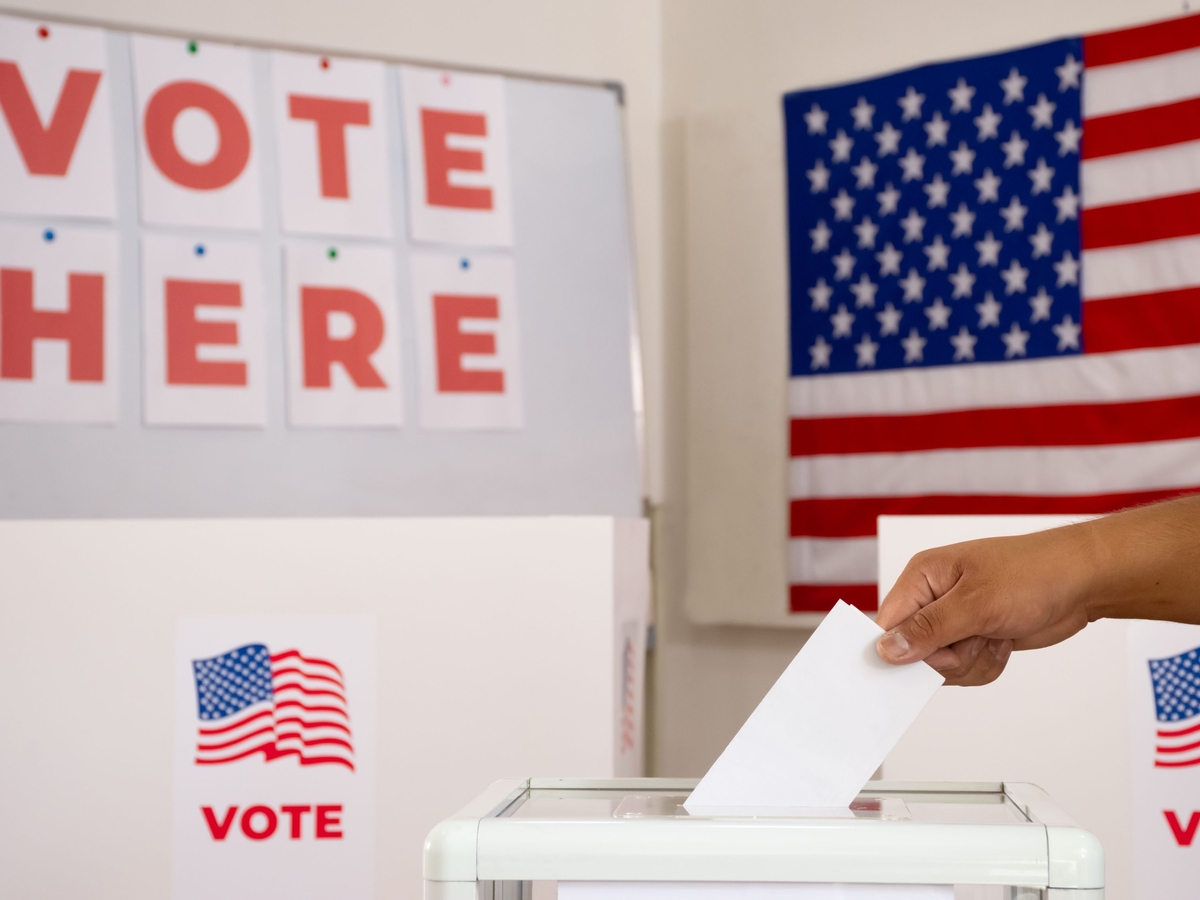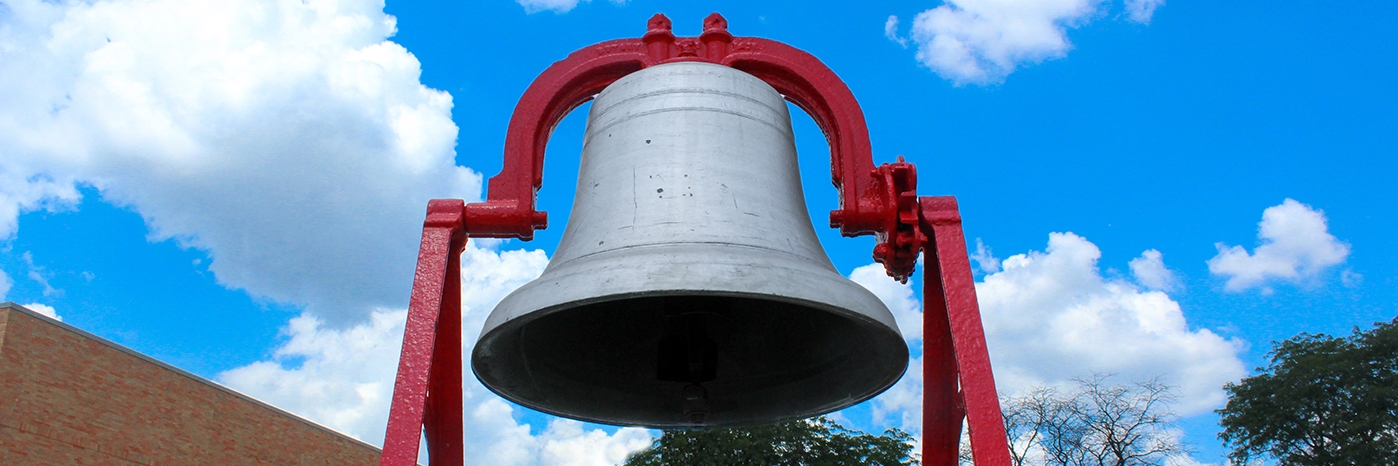Voices Ringing
Preparing the next generation of voters through Social Studies

Voice of America asked a group of citizens to take the test required of immigrants seeking American citizenship. Before the test, 89% of respondents expressed confidence they could pass it; 83% went on to fail. The pass rate of the naturalization candidates?
94%.
We have to do better.
I get reminded every day why social studies makes a difference; results of civics surveys, commentaries on news broadcasts, “man-on-the-street’ style interviews on the late-night comedy shows, interviews with politicians, and yes, the innocent and authentic questions from my very own students. All are good reminders of why social studies makes a difference.
USA Today found that only nine percent of Americans have read The Constitution. All our government students read the Constitution. We have to change that nine percent bit by bit. While only nine percent have read the Constitution, more than two-thirds of Americans complained nevertheless in a Lincoln Park Strategies poll that many American laws are “unconstitutional”. They should join in our classroom studies of the Supreme Court and the arguments that have come before it.
That same VOA poll found that ten percent of college graduates identified judge Judith Sheindlin as a member of the U.S. Supreme Court. Judith Sheindlin is actually syndicated television star “Judge Judy”.
More than 50% of respondents to a 2016 poll attributed the quote “From each according to his ability, to each according to his need” to either President Washington or President Obama. The quote is, of course, from Karl Marx, author of “The Communist Manifesto.”
30% of those polled believed The Bill of Rights does not guarantee trial by jury. It does. 40% believed it does guarantee the right to vote. It doesn’t. 45% did not know The Bill of Rights was the first ten amendments to the Constitution. 80% could not identify James Madison as the composer of The Bill of Rights. 82% did, in fact, identify Michael Jackson as the composer of “Billie Jean.”
I certainly know that Social Studies makes a difference, but it is stuff like this that keeps me up at night. Civil rights, economic policy, our Supreme Court, Congressional and Presidential elections are at the center of our nation’s daily political discussion. I can’t help but feel responsible, as a Social Studies educator, that evidently so many citizens may not be fully prepared for those discussions.
I don’t mean to imply that the evident demise of basic knowledge of American history and civics falls entirely at the feet of teachers. Our sense of the importance of our heritage and our civic duties comes equally from our families and communities as it does from our classrooms. Yet not everyone is so fortunate as to grow up surrounded by adults well-versed in our nation’s history and the laws of our land. I know I wasn’t. It was my teachers who kindled the curiosity and passion for history and the law that I think I bring to my room every day. That kindling of curiosity and passion does fall at the feet of teachers.
Social Studies makes a difference. Despite social studies being named by 40% of high school graduates as their favorite subject, many states, schools and districts in America are reducing Social Studies curriculum. To our credit Carroll has expanded the Social Studies curriculum with the addition of a new course; Advanced Placement Human Geography. Our students can now take an AP Social Studies class every year if they choose. This addition makes Carroll the only Catholic school in the area to offer AP courses to freshmen. Carroll students now have the ability to earn credit for 5 AP social studies courses.
Within our Social Studies department rests all the tools to ensure that our students can understand federal and local government, apply the law to their lives, and analyze historical trends and identify the most significant turning points in history. We challenge our economics students to apply economic principles to contemporary fiscal and monetary issues. In our social science courses we explore the nature of human behaviors.
While it is evident that in our complex world, some Americans may not be fully prepared to understand and engage in the most important discussions of our time, we believe, as Social Studies educators, that we can and must play a critical role in ensuring that this generation of young Americans is better prepared answer the political, social and ethical questions that will face their generation and the generations to follow. We accept that responsibility. We can do better. We must. We owe it to our students and their communities.
WORKS CITED
1 https://www.cnn.com/2017/09/13/politics/poll-constitution/index.html
2 https://www.politico.com/story/2015/04/pew-news-iq-test-results-117421
3 https://www.thedp.com/article/2019/09/penn-upenn-philadelphia-annenberg-public-policy-civic-knowledge
4 https://www.americanprogress.org/issues/education-k-12/reports/2018/02/21/446857/state-civics-education/
5 https://www.theatlantic.com/education/archive/2016/11/ignorance-does-not-lead-to-election-bliss/506894/
6 https://www.forbes.com/sites/nataliewexler/2020/04/24/why-kids-know-even-less-about-history-now-and-why-it-matters/#40ae9e1f6a7a
7 https://woodrow.org/news/national-survey-finds-just-1-in-3-americans-would-pass-citizenship-test/
8 https://www.theatlantic.com/politics/archive/2010/06/americans-vs-basic-historical-knowledge/340761/
9 https://nypost.com/2016/01/19/no-america-judge-judy-does-not-sit-on-the-supreme-court/


